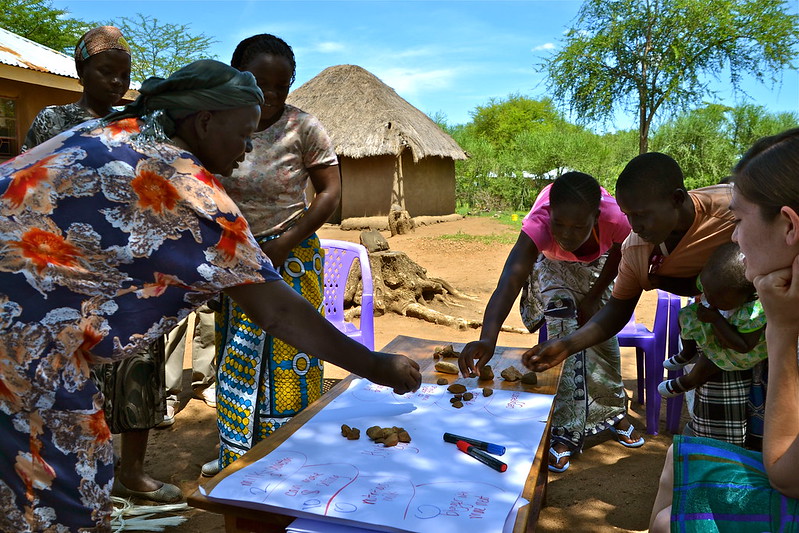The Girl Generation: Organization Helping FGM Survivors in Kenya
 Female Genital Mutilation (FGM) carries many risks, perhaps the most unspoken one being the psychological impacts of the often traumatic procedure. Though there is little research on the mental effects on survivors of FGM, it is widely accepted that many women suffer from conditions like depression, anxiety and post-traumatic stress syndrome.
Female Genital Mutilation (FGM) carries many risks, perhaps the most unspoken one being the psychological impacts of the often traumatic procedure. Though there is little research on the mental effects on survivors of FGM, it is widely accepted that many women suffer from conditions like depression, anxiety and post-traumatic stress syndrome.
In Kenya, where prevalence rates of FGM are high, various forms of therapy are being used to help girls and women deal with the lasting consequences of FGM on their mental health. Art therapy has been proven to be an effective way of processing the trauma survivors of FGM in Kenya have experienced.
What Is It?
The World Health Organization (WHO) defines FGM as “all procedures that involve partial or total removal of the external female genitalia or other injury to the female genital organs for nonmedical reasons.” There are many serious risks to these procedures, including short-term issues like shock, infection and serious bleeding. Furthermore, long-term issues include urinary problems, complications in childbirth (increasing the likelihood of newborn death) and psychological trauma.
FGM is considered a violation of human rights. It is most often performed on girls and so can also be a violation of the rights of the child. More than 200 million girls and women alive today are survivors of FGM. It is estimated that around 3 million people are at risk annually. In Kenya, FGM remains a significant issue, with a prevalence rate of 15%. While this marks progress from 21% in 2014 to 38% in 1998, more work is needed to reduce the rates further. In the meantime, it is crucial to support survivors of FGM in Kenya.
Lasting Impacts
After undergoing “the cut,” many girls leave education to marry, meaning the number of girls who remain in education is very low. Out of 80.8% of girls in rural areas who attend primary school, only 14.3% enroll in secondary school. FGM perpetuates poverty for girls by obstructing their access to education and pathways out of poverty.
With one-third of Kenyans living below the national poverty line, FGM exacerbates education gaps, excludes women from the workforce and imposes health care costs due to the procedure’s immediate and long-term effects. This prevents the country from achieving full prosperity.
Support for Survivors
The Girl Generation, in partnership with the U.K. Aid, is providing counseling services for survivors of FGM in Kenya. This initiative helps survivors cope with trauma and rebuild their lives. Since 2022, the organization has helped more than 500 survivors in Kenya. The Girl Generation also supports girls who dropped out of school to continue their education. Indeed, this allows them to escape the cycle of poverty.
Summary
Many girls and women remain silenced after experiencing FGM, with their suffering often ignored or dismissed. Art therapy and counseling provide a platform for these women to express their struggles and receive the support they need. The Girl Generation is one organization delivering these services to FGM survivors in Kenya.
– Eryn Greenaway
Eryn is based in East Sussex, UK and focuses on Global Health for The Borgen Project.
Photo: Flickr
